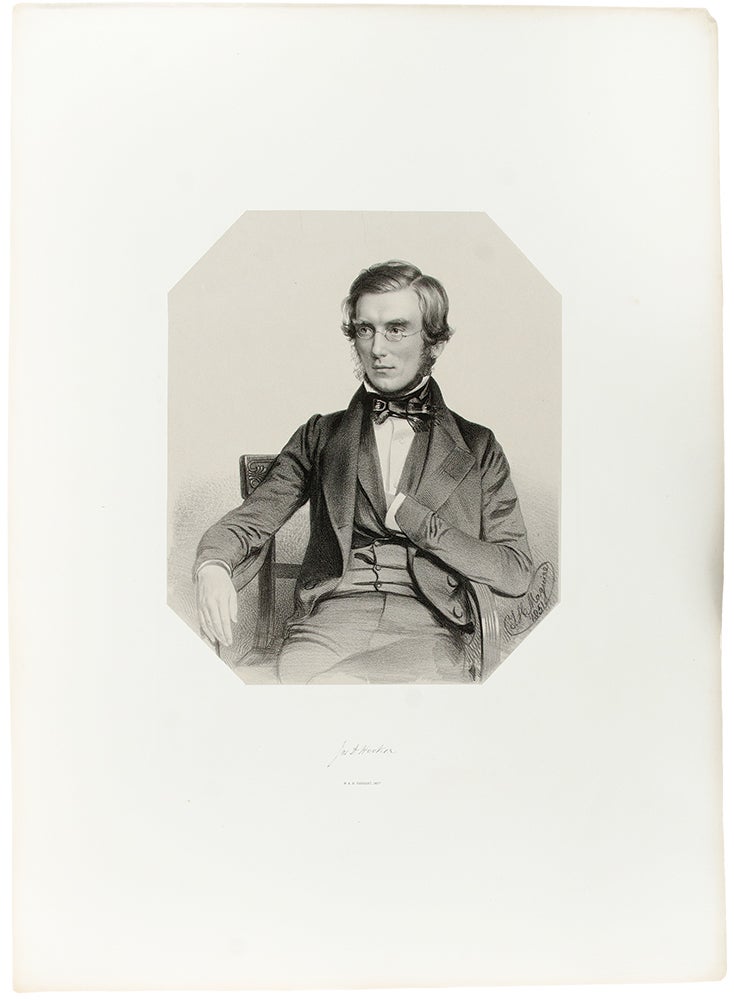MAGUIRE, Thomas Herbert (1821-1895)
Joseph Dalton Hooker
[Ipswich: George Ransome, c. 1851]. Tinted lithograph in octagonal format with signature " Jos. D Hooker" as title, and artist's printed signature in image: "T. H. Maguire 1851" Image size (including text): 13 1/8 x 9 3/8 inches. Sheet size: 23 5/8 x 16 7/8 inches.
A fine, sensitive portrait of one of England's greatest botanists.
Sir Joseph Dalton Hooker (1817-1912) was one of the leading lights of Victorian science. A close friend of Darwin's and son of the other towering figure in the study of botany of the Victorian Age, he established the scientific basis of geographical botany and advanced the study of paleobotany. His extensive travels in search of exotic plants earned him a reputation as an explorer as well. As a boy, Joseph Hooker began attending his father's lectures on botany at the University of Glasgow at the age of five, and the systematic study of plants was a life-long fascination. He and his older brother were tutored at home. Joseph then studied medicine at the University of Glasgow (the only way to study plants at that time was to study medicine), from which he received an M. D. in 1839. Hooker married John Stevens Henslow's daughter, Frances, with whom he had seven children in 1851. By this time he had gone on lengthy expeditions to Antarctica and Himalayas - indeed he was the first European to collect plants in Tibet. His travels provided plants for Kew Gardens, among others, and material for many books among them Flora Antarctica 1844-47; Flora Novae Zelandiae 1851-53; Flora Tasmaniae 1853-59. Despite his ever increasing family, Hooker loved making long explorations to exotic places. During the 1860s and '70s he made lengthy expeditions to Palestine, Morocco and the western United States. He is one of history's greatest plant explorers. In 1865, his father, William Jackson Hooker, died and Joseph was chosen to replace him as Director of the Royal Botanic Garden at Kew. He served in this position for 20 years. Thomas Herbert Maguire (1821-1895) was a British artist, who studied lithography with Richard James Lane. He is best known for the portraits of scientists, primarily naturalists, for which he was commissioned by George Ransome, F. L. S. in connection with the founding of the Ipswich Museum. Ransome gave the portraits as gifts to subscribing members and gave the entire portfolio, which ultimately ran to 60 portraits, to especially important figures, most notably Prince Albert when he visited the museum in 1851. Maguire brought to portrait making an unusual capacity to capture a person's type and character. His portraits did not try glorify their subject but rather showed their individuality. The subject's renown depended on their accomplishments, which would have been well-known to the observers.
Item #29074
Price: $1,500.00


